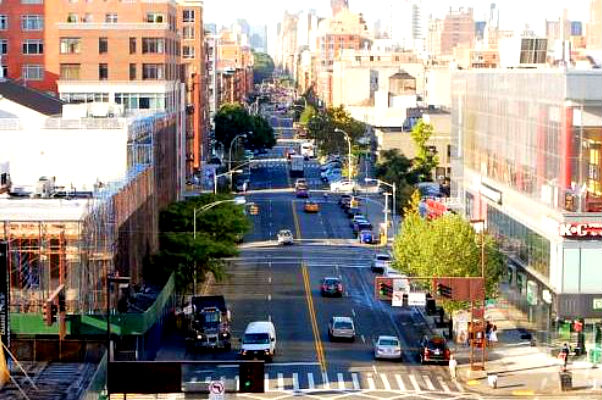 Coronavirus (COVID-19) tally as compiled by Johns Hopkins University. (Previous numbers in parentheses.)
Coronavirus (COVID-19) tally as compiled by Johns Hopkins University. (Previous numbers in parentheses.)
Total U.S. confirmed cases: 1,951,722 (1,920,061)
Total U.S. deaths: 110,771 (109,802)
Total global cases: 7,068,144 (6,916,233)
Total global deaths: 404,142 (400,121)
Study shows nationwide lockdowns were effective
While many people opposed lockdown measures to check the spread of the coronavirus (COVID-19), a new study shows it was highly effective in stemming the spread of the disease.
Researchers at the University of California at Berkeley studied measures enacted in the U.S. and five other countries — from stay-at-home orders to the cancelation of sporting events that normally attract thousands of people. The study concluded that those measures helped the six nations avoid 62 million cases of COVID-19, including 4.8 million in the U.S.
“Our results suggest that ongoing anti-contagion policies have already substantially reduced the number of COVID-19 infections observed in the world today,” the researchers wrote.
New York begins to open up
New York City, the hardest-hit city in the U.S. in terms of coronavirus cases, began to open again today after a dramatic decrease in cases, hospitalizations, and deaths. Among the first activities to resume are construction, manufacturing, and wholesale-trade sites. Retail stores have also begun offering curbside and in-store pickup.
Mayor Bill de Blasio noted that his city had the hardest time getting to a place where it could reopen because it was at the epicenter of the virus “Only because New Yorkers went the extra mile did we get here,” he said.
The mayor’s office estimates that 16,000 retail businesses and 3,700 manufacturing plants will reopen this week.
More evidence that large gatherings spread the virus
It’s easy to understand why COVID-19 spread so quickly through densely populated cities, but now it seems to be gaining momentum in sparsely populated rural areas. A closer look, however, suggests density has played a role.
The Wall Street Journal reports that seven members of a family in Gadsden, Ala., got the virus in April because the large family lived in tight quarters. The Journal analysis found that the virus occurs the most among the most crowded households, not necessarily places with the largest or densest populations.
A recent article in Science Magazine found that the virus is most likely to spread in cases when a dozen or more people are in tightly confined areas, or so-called “superspreader events.” That suggests policies of social distancing and canceling sporting events that attract arenas full of people may have kept the toll from the virus from being even worse.
Eli Lilly begins trial of antibody treatment
While work is underway on experimental vaccines for the coronavirus, drugmaker Eli Lilly has launched a Phase 1 clinical trial for its new antibody treatment. The first human volunteer has received a dose of the experimental drug.
The new medicine, codenamed JS016, is being co-developed by Junshi Biosciences and Lilly, with Junshi Biosciences leading development in Greater China. Lilly has exclusive rights in the rest of the world and will begin dosing patients in a complementary Phase 1 study in the United States in the coming days.
The studies will try to evaluate the safety, tolerability, pharmacokinetics, and immunogenicity of JS016 in healthy participants who have not been diagnosed with COVID-19.
Google Maps adding COVID-19 alerts
Google Maps can show you where to grab a bite to eat or get your car serviced. Soon, it will also tell you if your destination may increase the risk of exposure to the coronavirus.
In its blog, the company said it will provide coronavirus alerts when you are heading into an area where the virus is known to be a threat, such as crowded public transit. The features will be coming to Google Maps on iPhone and Android in the coming weeks.
If you’re on your way to a testing center, an alert will remind you to “verify eligibility and facility guidelines to avoid being turned away or causing additional strain on the local healthcare system,” the company said.
Become a Harlem Insider!
By submitting this form, you are consenting to receive marketing emails from: . You can revoke your consent to receive emails at any time by using the SafeUnsubscribe® link, found at the bottom of every email. Emails are serviced by Constant Contact








